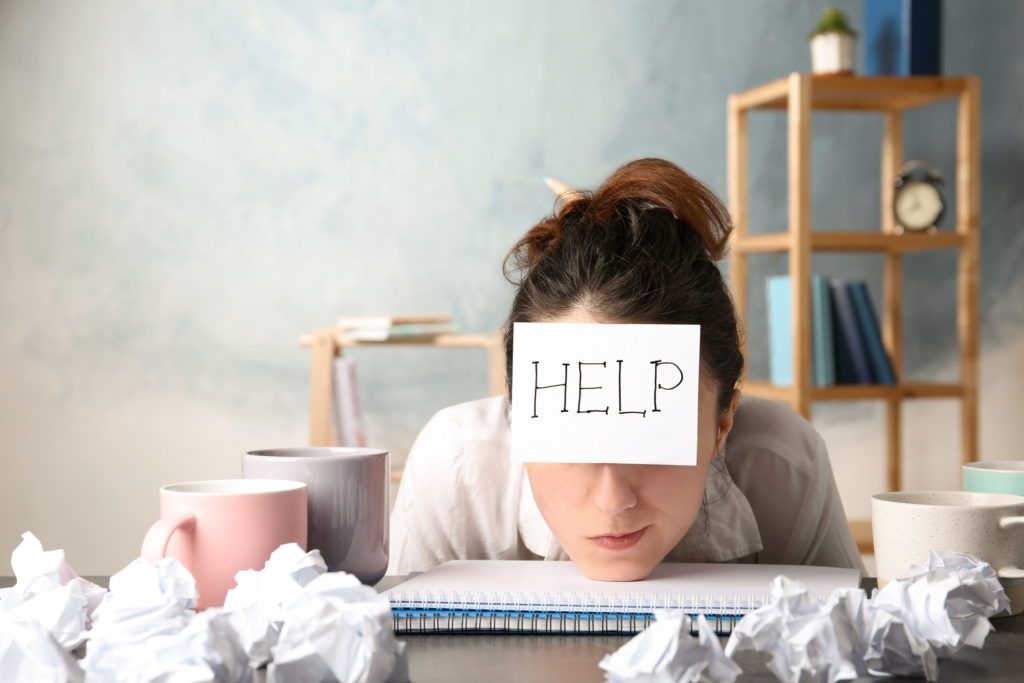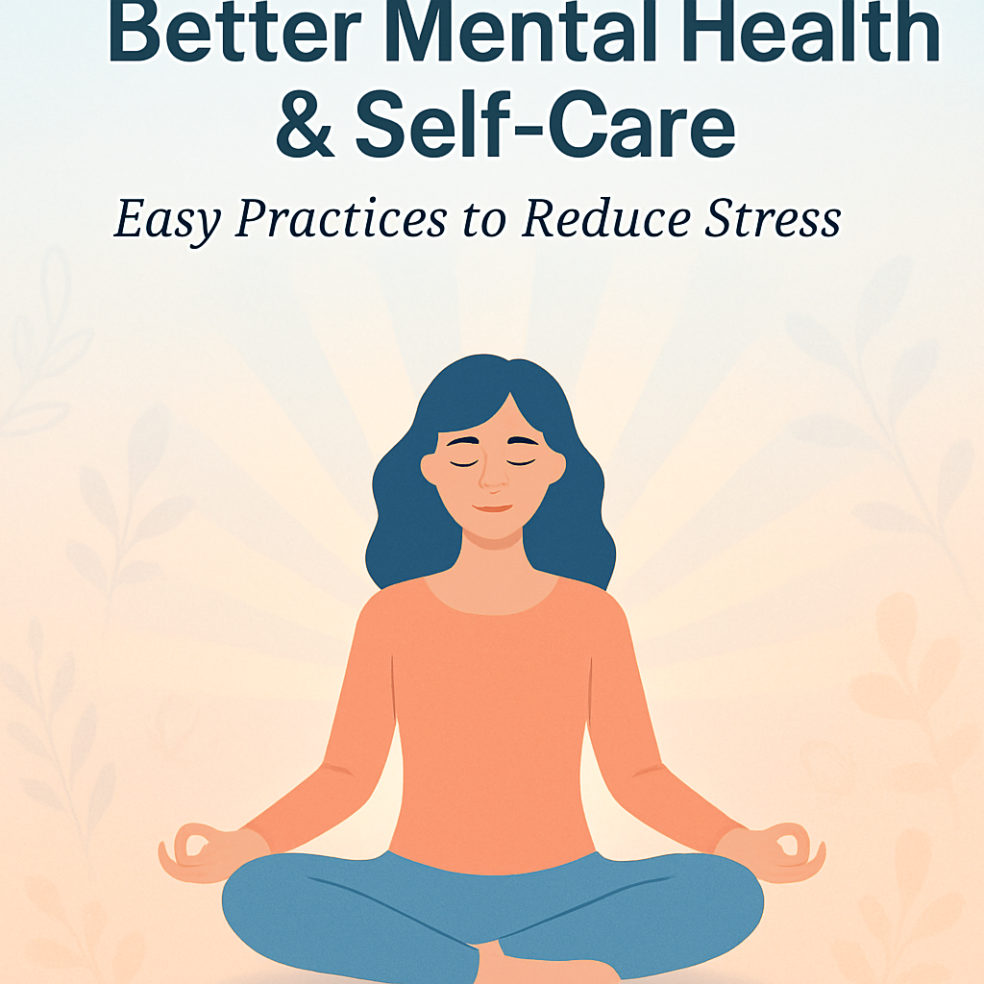In today’s fast-paced world, stress has become a constant companion for many. Whether you’re balancing work, school, relationships, or personal goals, it’s easy to feel overwhelmed. The good news? You don’t need a total lifestyle overhaul to take care of your mental health. With small, consistent self-care practices, you can reduce stress and start feeling more in control of your life.
In this post, we’ll explore simple and effective self-care tips that support your mental well-being—perfect for both young people navigating school or early careers, and adults managing everyday responsibilities.
Why Mental Health and Self-Care Matter

Mental health isn’t just about avoiding illness—it’s about cultivating emotional resilience, focus, and a sense of balance. When you prioritize your well-being, you not only improve your mood, but also your productivity, relationships, and even physical health.
Ignoring stress can lead to:
- Burnout
- Anxiety and depression
- Difficulty sleeping
- Physical symptoms like headaches or fatigue
That’s why self-care for mental health isn’t optional—it’s essential.
1. Start with Mindfulness and Deep Breathing

Mindfulness is one of the most powerful tools you can use to calm your mind. It brings your attention to the present moment and helps you slow down racing thoughts.
Try this:
- Take 5 minutes each day to sit quietly and focus on your breath.
- Use free apps like Insight Timer, Smiling Mind, or Headspace for guided meditations.
Deep breathing techniques like box breathing (inhale for 4, hold for 4, exhale for 4, hold for 4) are also proven to lower stress hormones and bring immediate relief.
2. Create a Consistent Sleep Routine

Lack of sleep is a silent stress amplifier. Good sleep hygiene can make a huge difference in your ability to handle daily pressures.
Sleep self-care tips:
- Go to bed and wake up at the same time every day—even on weekends.
- Avoid screens 1 hour before bed to reduce blue light exposure.
- Use a calming nighttime ritual: read, journal, or listen to soft music.
3. Move Your Body Daily (Even Just a Little)

Exercise isn’t just for physical health—it’s a proven stress reliever. It boosts mood by increasing endorphins and helps reduce symptoms of anxiety and depression.
Try:
- A 15-minute walk after lunch
- Stretching or yoga before bed
- Dance breaks in your room or between work tasks
Don’t stress about the gym—any movement counts.
4. Set Digital Boundaries

Endless notifications, comparison on social media, and digital overload can take a toll on your mental health.
Simple tech self-care ideas:
- Turn off non-essential notifications.
- Designate phone-free times (like during meals or the first hour after waking).
- Follow accounts that uplift and unfollow those that drain.
Try a digital detox for a day each week if possible.
5. Nourish Your Body and Mind

Your mental health is directly linked to what you eat and drink. Skipping meals, eating too much junk, or living on caffeine can fuel stress and fatigue.
Stress-reducing nutrition tips:
- Stay hydrated—carry a water bottle with you.
- Eat balanced meals with protein, healthy fats, and fiber.
- Cut back on excessive sugar and energy drinks.
Also, nourish your mind—listen to music, read something inspiring, or spend time in nature.
6. Make Time for Joy and Connection

Laughter, connection, and fun are powerful self-care tools. They act as emotional reset buttons when things get heavy.
Practice joy by:
- Scheduling catch-ups with friends (even virtually)
- Watching your favorite comedy or feel-good series
- Playing games, exploring a hobby, or doing something just for fun
Feeling connected reduces loneliness and builds emotional resilience.
7. Don’t Be Afraid to Ask for Help

Sometimes self-care means knowing when to reach out. Talking to a trusted friend, mentor, or mental health professional can be a life-changing step.
Signs you may need support:
- You feel anxious or sad most days
- You’re overwhelmed even after rest
- You’re struggling to function in daily life
You’re not weak for asking for help—you’re strong for taking care of yourself.
Final Thoughts: Small Steps Lead to Big Change

The journey to better mental health doesn’t require perfection—just progress. Even the smallest acts of self-care can reduce stress and help you feel more grounded. Be kind to yourself, take it one day at a time, and remember: your well-being is worth investing in.
🌿 Want More Self-Care Inspiration?
Subscribe to our blog or follow us on social media for weekly tips on wellness, productivity, and personal growth.
Read this Next:
1 Better Economy: The Power of Financial Education at Any Age
2 Best Free Mobile Games that are Addictive in 2025
3 The Best Films and Series That Mix Romance and Fantasy
4 The Ultimate Guide to Quality Sleep that Will Make Your Life Better
5 Easy Extra Income Options That Need Minimal Investment

© YourCoinBlox. Not to be reproduced without perm


7 thoughts on “Better Mental Health and Self-Care – Easy Practices to Reduce Stress”
Okay, 89game… not bad, not bad at all! Decent graphics and the gameplay is pretty smooth. If you’re looking to kill some time, this is worth checking out. Click here: 89game
Heard some buzz about KUVIP, so I gave it a shot. Registration was easy peasy, and they had some promos that caught my eye. Hopefully, it’s not just hype! Gonna keep playing and see where it goes. Here’s the link: kuvip
Fun88 access? Always a pain finding the right link. This linkvaofun88 site seems legit. Fingers crossed it works! Let’s see what’s up: linkvaofun88
Jljl50login. Getting logged in there is super quick and easy. Gotta love that: jljl50login.
Hey there! Just checked out wyn09 the other day and it wasn’t bad. Pretty decent platform. You can find it here: wyn09
Alright gamers, anyone tried in7apkgame yet? Snagged a few games from there, pretty smooth experience. Check it out for yourself here: in7apkgame
Người chơi sẽ được hoàn lại,25% tổng số tiền đặt cược mỗi ngày, không giới hạn tối đa. Slot365 – Trang Chủ Đăng Ký & Đăng Nhập Chính Thức Chính sách này áp dụng cho tất cả các loại hình cá cược, bao gồm Thể Thao và Quay Số (Saba), giúp giảm thiểu rủi ro và tối đa hóa lợi nhuận. TONY02-25O